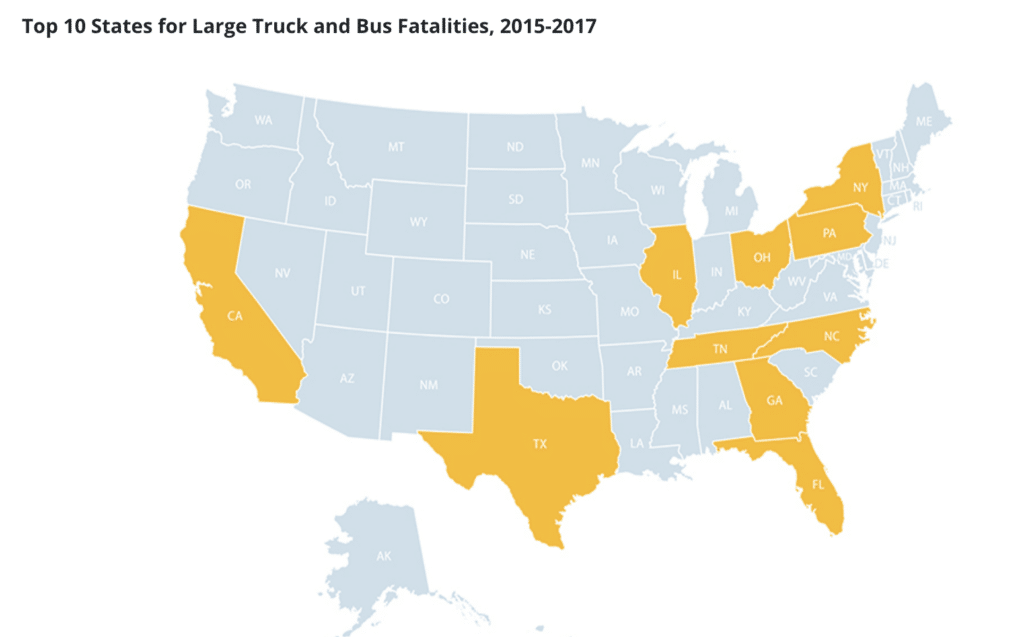
 Request FREE consultation - 1866-758-4529
Request FREE consultation - 1866-758-4529 
We rely on commercial trucks to transport goods across the country. With more than 38.9 million trucks on the roads in the United States and millions of truck drivers, it raises the question: does truck driver inexperience cause accidents? Truck drivers must undergo training and hold a valid truck driver’s license.
While we need trucks, they can also be dangerous. Accidents with trucks are more likely to cause severe harm and injuries than other crashes. Drivers with less experience are more apt to be involved in accidents than drivers with extensive expertise.
Those who want to drive commercial trucks professionally must obtain a commercial driver’s license (CDL). The Federal Motor Carrier Safety Administration (FMCSA) is a part of the U.S. Department of Transportation. They provide requirements that drivers must meet to obtain a CDL. Applicants must pass a skills and knowledge test and demonstrate competence to get a license.
Texas Department of Public Safety (TxDPS) requires an applicant for a commercial license to hold a valid Texas driver’s license. Several classes of CDL licenses are available, depending on the type and size of rig you drive. Drivers must obtain special endorsements for transporting certain materials or for operating specific types of rigs.
Commercial truck drivers must have a valid CDL, pass a physical, and have endorsements needed for the particular materials they transport. Truck drivers must follow the rules of the road. Drivers are mandated to take regular breaks when driving and must have rest periods before they can get behind the wheel again.
The law requires trucks to utilize an electronic logging device (ELD) that records valuable information about driving time. Drivers must submit to regular drug testing and pass physicals based on the type of license they maintain. When a driver is compromised due to fatigue or substance use, it will inhibit their ability to function while driving. Inexperienced drivers will have even more difficulty under these circumstances.
Trucking companies might be held responsible or partly responsible if an accident was due to their negligence. Trucking companies must ensure that they hire experienced drivers with the proper training and licensing to operate a big rig.
Trucking companies must ensure that their drivers are safe and must check their safety records. Also, trucking companies must ensure that they provide proper vehicle maintenance and that trucks get inspected when necessary. If a trucking company fails to provide a safe vehicle, it might be negligent and partly or wholly accountable for a resulting crash.
CDL drivers are held to a higher standard than other drivers when they operate a truck on the roadways. Large trucks can weigh as much as 80,000 pounds or more, which makes them difficult to control and stop in some conditions.
Inexperienced truck drivers can have difficulty controlling rigs when they face some situations, such as traffic congestion, weather conditions, shifting loads, and mechanical malfunctions. Each particular accident is unique, and sometimes the driver and the trucking company could hold some responsibility for the crash.
For example, tires that are not adequately maintained might blow out on the road. A driver with little experience may not be able to control the rig, which could result in a serious accident. In this instance, it is possible that both the driver and the trucking company were negligent.
It is no secret that Texas leads the nation in fatal truck accidents in Texas. Part of the reason is that Texas is such a large state with many miles of Highway. Additionally, speed limits are somewhat relaxed within Texas, even for commercial drivers. Finally, Texas’s rapid growth in population has put a strain on traffic, and it is one of the most congested States in major metropolitan areas.

Truck accidents are incredibly complicated, and many factors are often involved in a specific casualty. If you were seriously hurt in a truck accident, you need legal guidance as soon as possible to ensure that you obtain compensation for your injuries.
Contact our Texas truck accident attorneys today to discuss your injury in a free phone consultation. Call (281) 893-0760